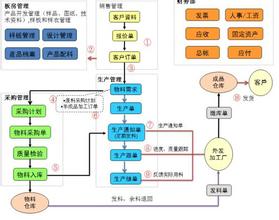作为建筑行业的外人,我们所知道的也许仅仅是媒体曝光的建筑工人利用过激欠薪行为,可是究竟为何出现欠薪行为,发展商,承建商,包工头和建筑工人之间错综复杂的关系又是怎样?建筑行业所承担的社会责任又是什么?作者访问了在建筑行业的行内人,讨论以上问题,写下本文。
China’s construction sector: Untangling CSR issues
The Western media routinely publishes stories on workplace conditions in the manufacturing sector and China’s coal mines. Yet outside of the mainland press, the issues confronting workers in construction are rarely canvassed. This is despite the fact that conditions in the industry are dangerous and employees are routinely denied basic rights under Chinese laws and regulations.
Over the last couple of years, the Chinese press has started covering more stories about the industry, including workers committing suicide over the non-payment of wages, of the violence workers sometimes face when they ask for wages owing, and the complex relations between developers, contractors and workers. Despite this, most people outside the industry have limited knowledge of what really happens on large construction projects. This article is based on a candid interview with an industry insider who, obviously, wants to remain anonymous. Companies investing in or involved in construction projects in the mainland should at the very least be aware of the main issues canvassed below.
Mr Zhang works in a private construction company that is involved mainly in infrastructural projects for the government, such as highways, freeway interchanges, bridges, metro stations, and so on. Despite the large size of most projects, there are only about 30 full time employees in the head office. However, this fluctuates somewhat because the number of staff employed in each project management department differs according to the size of each project.
The relationship between different companies involved in projects varies depending on a range of factors. But in general, developers/investors publicly tender out portions of the project for which interested construction companies bid. After bids are finalised, the successful construction companies organise project management departments. If the project is very large, construction companies may subcontract smaller elements or even single items to other construction companies and teams. It is then the responsibility of subcontractors or teams to employ workers for the job (see Figure 1 on next page).
Construction companies will normally assign jobs to workers currently on the payroll – or those who have worked for them previously – if possible. However, as is often the case, they may need to take on new workers if the project is big or the company has a lot of work on elsewhere. If this is the case, the company will seek out friends or relatives from the hometowns of labourers currently employed.
Construction companies sign contracts with the main contractors and also with sub-contractors. However, there is no legal relationship between labourers and the sub-contractor. The construction team is not an enterprise and in law doesn’t exist.
The main problem arising from this is that workers often don’t receive their wages. There are many reasons why labourers don’t get paid, but there are really only two main causes (both related to a chain of command involving investors, construction companies, sub-contractors and workers).
The first cause concerns the investor. If investors don’t have enough money for project completion (and this is not a rare occurrence), then the construction company doesn’t have the means to pay the construction team, thus construction workers are unable to obtain wages from the sub-constructor. It is impossible for workers to get back wages in this situation.The second cause lies with the sub-contractor. It is uncommon in the industry for sub-contractors to pay full wages each and every month. There are two reasons for this. The first is related to cash flow; construction companies want to have the most money on hand possible to work on other projects. The second reason for paying wages in arrears is to keep workers on site. Common practice is for contractors to pay workers a small survival wage of around 200 yuan each month and then to settle what’s owing at the end of each year (i.e., just before Lunar New Year). Workers tend not to complain to companies about this unless they need money for emergencies. If workers need money before the end of the year, they need to claim it from the sub-contractor directly, who in turn goes to the construction company, and so and so forth, step by step, back to the top of the chain.

Construction companies will usually pay workers if investors or developers have paid project fees. This isn’t always the case, but even so, workers’ wages constitute only a very small percentage of project cost (they are very cheap labour) and construction companies and contractors should be able to cover such wages quite easily. Some sub-contractors have the money to pay but just don’t.
Figure 1: Workflow in the Construction Industry
However, Mr Zhang believes that the problems with back pay are not just the result of dishonest employers. He also believes that the market (which is extremely messy) and weak monitoring by the government also play a role. For instance, paying wages in arrears is still a serious and open problem in China, so why does it keep occurring?
One of the problems is that the government only fines construction companies small amounts that are ineffective. Another is that workers don’t know enough to protect their rights. Moreover, appealing to the Labour Department or government rarely resolves back pay problems. The appeal process is complicated, which is why labourers sometimes resort to guoji xingwei [drastic action such as strikes and so on]. However, for this to be effective it must be reported by the media to get attention from the public. Otherwise, says Zhang, it’s useless.
Migrant workers have few avenues to demand wages owing. Construction professionals like surveyors are much better placed to take action (if they are owed wages they will simply leave and find a job with another company). However, migrant workers can do nothing! If they quit, bosses can easily find others to work for very low pay. Zhang believes the only realistic option is yong jiao toupiao [voting with their feet], just like manufacturing workers in the Pearl River Delta who choose better pay and working conditions. But it is, he concludes, not an easy issue to solve.
此文章出自 CSR·Asia:企业社会责任亚洲 ,点击这里进入 CSR·Asia:企业社会责任亚洲 的专栏。 爱华网
爱华网



